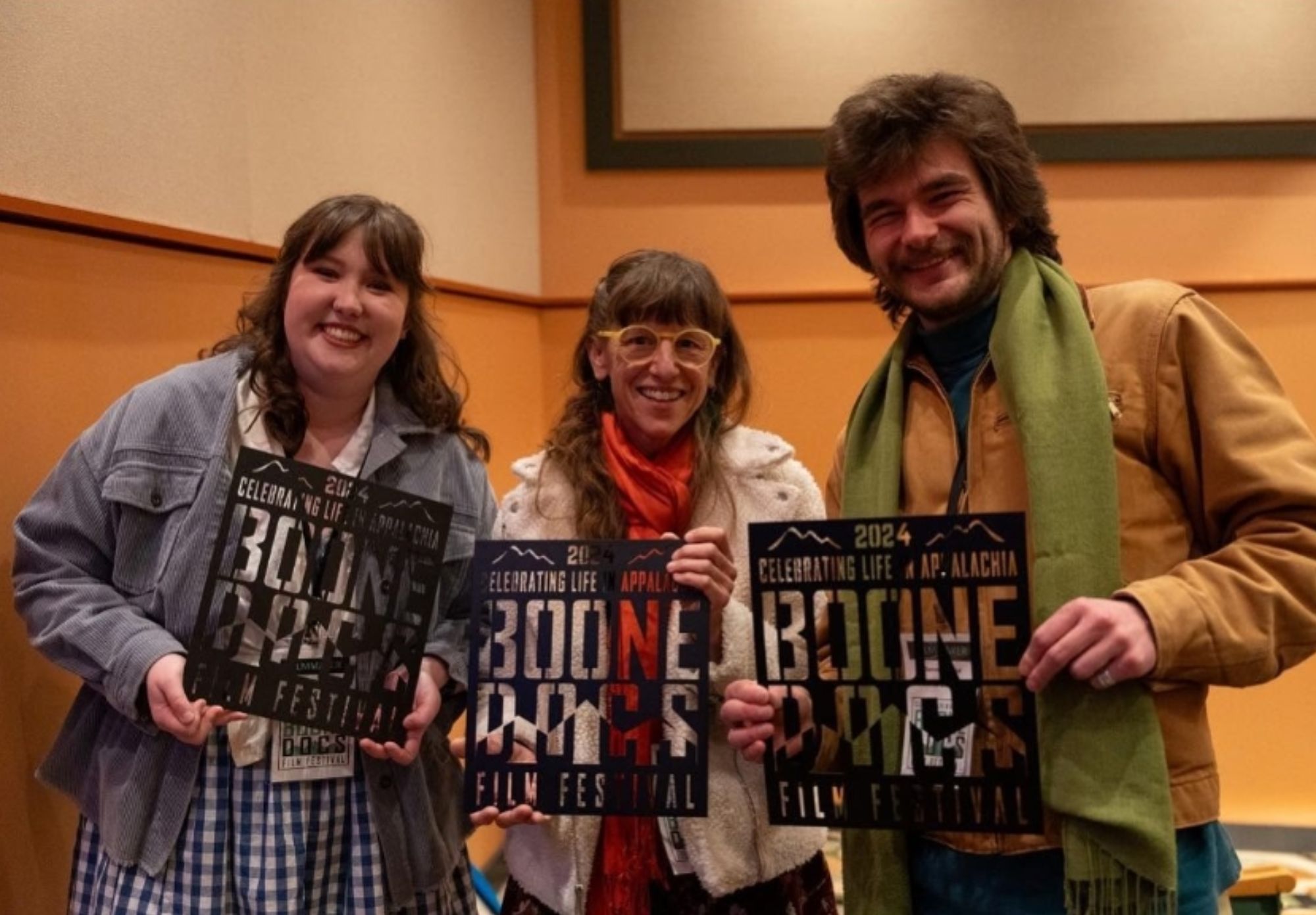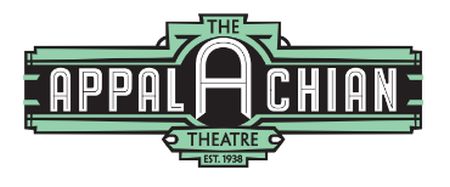
BOONE DOCS FILM FESTIVAL RETURNS TO APPALACHIAN THEATRE WITH ANOTHER CELEBRATION OF APPALACHIA
BOONE DOCS FILM FESTIVAL RETURNS TO APPALACHIAN THEATRE WITH ANOTHER CELEBRATION OF APPALACHIA
The fourth year of the festival brings an expanded lineup
BOONE, N.C. – The 2025 Boone Docs Film Festival, showcasing short documentaries focused on the people who live and work in Appalachia, expands this year to include four blocks across two days – Feb. 21 and Feb. 22. All festival events will take place at the Appalachian Theatre, 559 W. King Street in Boone, North Carolina. Additionally, each of the film screenings will include a panel discussion with participants in the films and/or the filmmakers.
The juried festival screening will be held on Saturday, Feb. 22 from 2 – 4:30 p.m. This block includes the announcement of the “Jury’s Choice,” “Best Student Film” and “Audience Choice” award winners.
Other blocks include a Friday workshop on documentary lmmaking, open to all members of the public, and a special Friday night screening of the acclaimed documentary “How To Sue the Klan,” about an innovative legal approach taken against the Ku Klux Klan in Chattanooga after members of the KKK attacked ve Black women in the early 1980s. Also part of Boone Docs Film Festival is a Saturday evening screening sponsored by High Country Humanities,with lms by local lmmakers focused on climate, community and resilience.
“We are thrilled to be expanding our programming this year. The lms in the festival cover a wide range of issues – from the importance of regional storytelling to the value of home cooking to preserving to the songs of the elders, among other topics,” said Beth Davison, a lmmaker and festival organizer."
Boone Docs Film Festival – 2025 lineup
Boone Docs Film Festival is held annually to share stories that celebrate and illustrate life in Appalachia. The festival is a collaboration between Appalachian State University faculty Beth Davison, Tom Hansell and Anne Ward, and Jason Deathridge and Krystal Carter of the Appalachian Theatre.
The festival would not take place without the support from everyone with the Appalachian Theatre. “We are excited to bring this wonderful lm festival back to Boone and the Appalachian Theatre for the fourth year. Each year, we get to highlight moving stories about the people who make Appalachia special,” said Jason Deathridge, Patron Services Manager at Appalachian Theatre and one of the organizers of the festival.
SCHEDULE OF EVENTS FOR THE 2025 Boone Docs Film Festival
FRIDAY AFTERNOON WORKSHOP: with Jon Beder - will be held in the Community Room at the Appalachian Theatre from 1 – 3 p.m. Admission to the workshop is free to the public. Beder, an award-winning lmmaker and director of the highly-acclaimed “How to Sue the Klan” documentary, will discuss his experience in funding and producing documentaries.
FRIDAY EVENING SCREENING: “How to Sue the Klan” – from 7 p.m. – 8:30 p.m. Directed by Chattanooga-based lmmaker John Beder, “How to Sue the Klan” is the story of how ve Black women from Chattanooga used legal ingenuity to take on the Ku Klux Klan in a historic 1982 civil case, ghting to hold them accountable for their crimes and bring justice to their community. Their victory set a legal precedent that continues to inspire the ongoing ght against organized hate. Following the lm, Chris Everett, artistic director of the Southern Documentary Fund, will moderate a panel discussion with Beder and Chris Moody, Department of Communication lecturer and assistant producer of the lm. Admission is free for this block.
SATURDAY AFTERNOON JURIED FILM FESTIVAL SCREENING – from 2 – 4:30 p.m. The juried lm festival block provides the showcase for the eight lms selected by the Boone Docs jury:
- “A Lost Home” – by Chris Jiminez, Luke Blankenship and Gabriel Cambre. This lm explores the emotional toll and physical devastation two people experienced after Hurricane Helene ravaged Boone, North Carolina.
- “A Nest of Singing Birds” – by Aarionna Clackler. In the heart of Appalachia sits a place known to locals as Sodom. This is one of the few places where the tradition of ballad singing has lived since it made its way to America. This documentary seeks to give audiences a glimpse into the communities that still nurture this tradition and the familial connections and relationships that come with it.
- “Appalheads” – by Scott Faris. Decades after leaving Appalachia, Anna Richardson White returns home to eastern Kentucky to excavate her father’s remarkable lmmaking legacy – as the founder of Appalshop – and examine the pull home still has on her.
- “A Runner's High” – by Cameron Wilson. This lm shares the story of Cherokee ultra marathon runner Kallup McCoy II, who is on a mission to make sure nobody else makes the same mistakes he did.
- “Marble Madness” – by Zack Harold. Every spring, the students of one elementary school in Boone County, West Virginia still get excited for marbles, a game that’s more than a hundred years old. A short drive away, an Ohio River factory is likewise keeping the game alive — as the last industrial manufacturer of marbles in the U.S. This is a story about marbles.
- “My Mother's Table” – by Emily Hofelich, Tricia Fulks Kelley and Ginny Whitehouse. This lm is a celebration of women's contributions to their families and communities through sharing food. Generations of women show love, express themselves, and build community through their recipes and dishes.
- “Sweet Press” – by Laura Iancu. In a small town in Virginia, a young family engages in the tradition of sorghum pressing – and in the process, makes sweet autumn memories.
- “Zane” – by Jillian Carney Howell. After losing his job, a man with an intellectual disability and his advocate mother take on the challenge of nding an accessible and accommodating workplace in West Virginia.
“These documentaries provide wonderful insights into life lived within the Appalachian region, and the Appalachian Theatre is an incredible and historic venue for screening these lms,” said Tom Hansell, a lmmaker and festival organizer.
Tickets to the Saturday afternoon screening of the Boone Docs Film Festival at the Appalachian Theatre are $12 each and available for purchase online via ATHC’s touchless ticketing portal at: https://www.etix.com/ticket/p/74079765/boonedocs-lm-fest-2024-boone-appalachian-theatr e
“It’s inspiring to see the high-quality storytelling coming to the festival from young emerging student lmmakers to award-winning directors. It's exciting also because the Appalachian Theatre is the perfect venue for this annual event,” said Krystal Carter, development and oce coordinator for Appalachian Theatre and one of festival organizers.
SATURDAY EVENING “DOCUMENTING OUR COMMON HUMANITY” SCREENING, SPONSORED BY HIGH COUNTRY HUMANITIES – 7 p.m. – 8:30 p.m.
The Saturday evening screening provides a showcase for local lmmakers whose works focus on climate, community and resilience. Thanks to sponsorship by High Country Humanities, admission to this screening is free to the public. After the screening, a panel discussion will be held with participants in the films.
Films in the Saturday evening block include:
- Two lms by Beth Davison 3
Boone Docs Film Festival – 2025 lineup
- “We Begin Again at 9:30” – following the Todd community’s response to Helene.
- “Above the Mountain Majesties” – an experienced paraglider guides a determined newcomer toward ight in the North Carolina High Country.
A film by Tom Hansell
- "Inundation” – sharing Hansell's experience of living through Hurricane Helene.
A film by Anne Ward and Chip Williams
- “Blue Ridge Women in Agriculture: Farm, Food & Community” – a look at the rst 20 years of a local nonprot established by women for women farmers, and its role in the development of local food pathways in Watauga, Ashe, and Avery counties.
A film by Sammy Osmond
- “Cane Boil” – a community comes together for a local tradition.
“Anyone who lives here knows that Appalachia is full of richly diverse and interesting stories,” said Anne Ward, a lmmaker and Boone Docs organizer. “It’s a great privilege to be able to share these lms about the region I call home.”
About the Boone Docs Film Festival
The Boone Docs Film Festival is a juried film festival that screens short-format documentaries celebrating life in the Appalachian region, providing a platform for stories about the people who call the Appalachian Mountains their home. The films presented at Boone Docs celebrate the diversity of life and cultures in one of the world’s oldest mountain chains.
About the Appalachian Theatre
The Appalachian Theatre of the High Country is a historic Art Deco theatre built in 1938, renovated, and restored to a 629-seat state-of-the-art performance venue which reopened to audiences in October 2019 to serve the North Carolina High Country region as a non-prot performing arts center. Programming includes a diverse array of live performances, concerts, lms, community arts and civic events. More information about the Appalachian Theatre, a non-prot 501(c)(3) organization, is available by calling 828.865.3000 or by visiting apptheatre.org.
About High Country Humanities
High Country Humanities at Appalachian State University aims to foster a greater understanding and appreciation of the humanities across the High Country region of North Carolina. The program supports faculty in their scholarly activities, promotes their collaborations with community partners and organizes events that help their expertise reach the wider public. High Country Humanities is an initiative of App State’s College of Arts and Sciences, with support from the Division of Academic Aairs. Learn more at hchumanities.appstate.edu.




